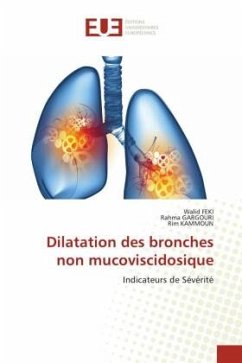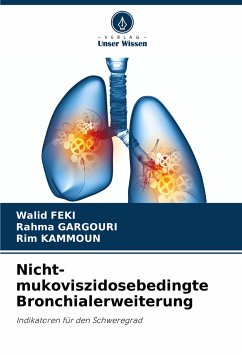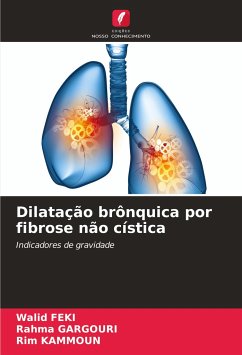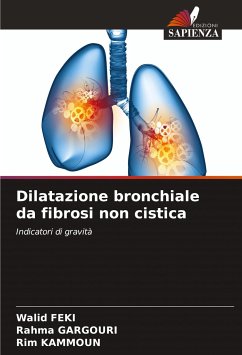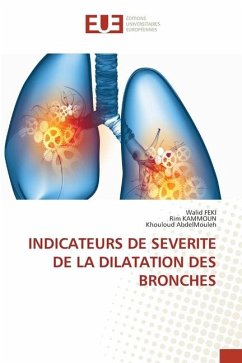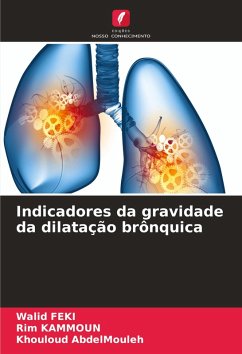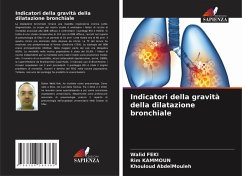
Non-cystic fibrosis bronchial dilatation
Indicators of Severity
Versandkostenfrei!
Versandfertig in 6-10 Tagen
40,99 €
inkl. MwSt.

PAYBACK Punkte
20 °P sammeln!
Bronchial dilatation (BDD) remains an under-diagnosed chronic respiratory pathology. The calculation of severity scores is necessary for our population. The aim of this study is to analyze the mortality risk factors associated with diffuse DDB, and to compare the BSI and FACED scores in order to propose a new severity score. We proceeded with a comparative study of 110 cases of diffuse DDB, collected at the Sfax Pneumology Department covering the period from January 1, 2009 to December 31, 2018. Results: The sex ratio was 1.4 with a male predominance (58%). The mean age was 60 years. The clini...
Bronchial dilatation (BDD) remains an under-diagnosed chronic respiratory pathology. The calculation of severity scores is necessary for our population. The aim of this study is to analyze the mortality risk factors associated with diffuse DDB, and to compare the BSI and FACED scores in order to propose a new severity score. We proceeded with a comparative study of 110 cases of diffuse DDB, collected at the Sfax Pneumology Department covering the period from January 1, 2009 to December 31, 2018. Results: The sex ratio was 1.4 with a male predominance (58%). The mean age was 60 years. The clinical picture was dominated by exertional dyspnea, productive cough and morning bronchorrhea. Chest CT showed a predominance of cylindrical forms (75%). The BSI score is the best predictor of mortality, hospitalization and FEV1 decline in our population. On the other hand, no score predicts exacerbations. Thus, the BSI is the most reliable score that can be applied to our population, while taking into account identified mortality risk factors.





